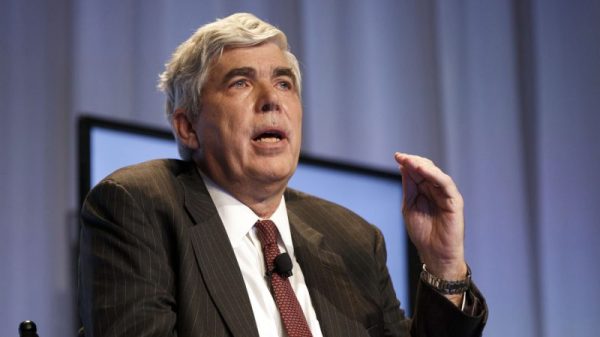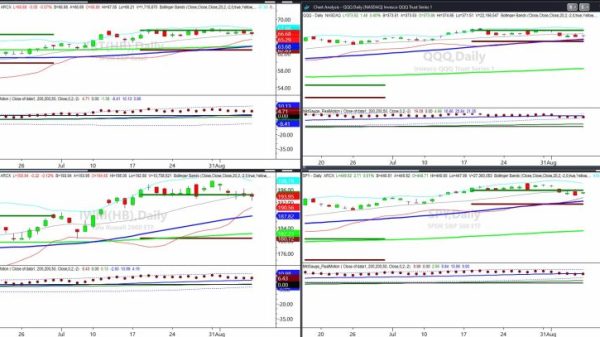BC’s mineral exploration and mining sector contributes C$7.3 billion to the province’s GDP, and according to the Mining Association of BC (MABC) critical minerals extraction could grow that amount significantly.
To unlock this value, the NDP and Conservative parties agree that mine permitting and development need to be streamlined and fast tracked to benefit BC, as well as national energy transition ambitions.
“Northwest BC has the critical minerals that are in high demand worldwide, giving us a huge advantage in the global movement to a clean economy,” said NDP Premier David Eby. “Our plan will get mining projects moving that grow BC’s economy, create good jobs across the Northwest, and benefit communities directly.”
To achieve this, the NDP wants to boost the province’s critical minerals sector while maintaining high environmental, safety and Indigenous partnership standards, Eby said during a September 24 campaign stop.
His party’s plan includes setting clear timelines for permit reviews on priority projects with support from the newly established Critical Minerals Office, which will also coordinate with the federal government to reduce bureaucratic hurdles and enhance First Nations engagement. The NDP also proposes to introduce union-led training programs, expand the clean energy electricity grid and fund infrastructure upgrades in the northwest.
Additionally, Eby has promised that resource development will bring lasting benefits to local communities through the Resource Benefits Alliance and expanded revenue-sharing and equity opportunities for First Nations.
“For too long, communities across BC’s Northwest saw the impacts of resource projects — like more wear and tear on roads and highways, increased demand on local services–but they weren’t seeing enough of the benefits,” Eby noted.
“We took action to change that. We’re investing money directly back into infrastructure communities like Terrace and Vanderhoof while building up the economy.”
BC’s current critical minerals strategy
Most of the themes outlined in the NDP’s non-costed platform are in line with the first phase of the province’s Critical Mineral Strategy, which was released by Eby’s government in January.
Independent of the national initiative, which identifies 31 critical minerals vital to the country’s energy transition ambitions and economic future, the provincial strategy aims to position BC to benefit from its geological makeup.
Of Canada’s 31 critical minerals, BC holds reserves of 16. Notably, the province produces 50 percent of the nation’s annual copper output and accounts for 100 percent of its molybdenum mining.
Copper and molybdenum are both considered critical minerals, as are magnesium and zinc, which BC also produces. At the moment exploration is ongoing in the province for seven more critical minerals, including nickel, cobalt, graphite and vanadium, which are essential for technology applications and the energy transition.
Phase 1 of the BC strategy includes creating a Critical Minerals Project Advancement Office, developing a minerals atlas for exploration and collaborating with First Nations on infrastructure projects like the North Coast Transmission Line.
The strategy also focuses on maintaining high environmental standards through initiatives like the Energy and Mines Digital Trust project, along with enhancing transparency.
Conservatives take issue with NDP’s mining approach
BC Conservative Party leader John Rustad took aim at the NDP’s resource industry track record in a September 24 press release that also outlines his party’s plans for the mining sector.
“The mining and mineral exploration industry, a cornerstone of British Columbia’s economy, has been stifled by increased regulatory burdens, inefficiencies in permitting, and a lack of rural infrastructure investment under the leadership of David Eby’s government,” the statement reads, highlighting the NDP’s ‘excessive red tape.’
It goes on to point to permitting delays, regulatory overreach, lack of infrastructure investment and uncertainty in Indigenous consultation as challenges hampering the sector under the current provincial government.
To address some of the outlined issues, the Conservatives are proposing to streamline the permitting process and reduce regulatory burdens. The party also wants to hold companies accountable for site cleaning and remediation, and make investments in critical infrastructure. Its other goals are to pursue economic reconciliation with Indigenous communities, provide competitive tax incentives and position BC mining at a global level.
“British Columbia should be a global mining superpower,” said Rustad. “But under the NDP, we’ve missed critical opportunities. The Conservative Party will reinvigorate the industry, create jobs, and ensure that rural BC and its communities thrive once again.”
Mining industry reacts to NDP and Conservative platforms
Responding to the release of both platforms from BC’s leading political parties, Michael Goehring, president and CEO of MABC, underscored the need for the government to support the mining sector.
“The provincial election presents a pivotal moment for British Columbia’s political parties to champion the essential role of BC’s mining sector in the future of our province,” he said. “Commitments to streamline the permitting process for critical minerals projects are not just welcome — they are crucial.”
Goehring went on to acknowledge that the overviews presented address issues his organization has championed over the years. “Both main parties clearly understand BC’s critical minerals potential. As representatives of the mining sector, MABC will be there to ensure they follow through on their commitments,” he said.
“Together, we can create a streamlined and efficient permitting process that fast-tracks project approval, advances economic reconciliation and partnerships with First Nations, while maintaining BC’s world-leading environmental protections. It’s a win for the entire province, and the time to act is now,’ Goehring added.
The Association for Mineral Exploration also issued a statement following the release of the NDP and Conservative platforms. In it, President and CEO Keerit Jutla emphasized the importance of greenfield mineral exploration.
He warned that without a focus on exploration, the foundation of BC’s critical minerals future could be undermined. While encouraged by the NDP and Conservative parties’ pledge to streamline permitting process, Jutla took issue with a perceived lack of exploration support in the NDP’s plan.
“The BC NDP’s mining platform, while commendable, falls short by not explicitly supporting the indispensable role of mineral exploration,” he said. “We urge all political parties to integrate a comprehensive approach to mining that includes robust exploration initiatives to support a thriving mining sector in BC.”
According to a 2024 MABC study on the economic impact of critical minerals in BC, more than 1,100 publicly listed exploration companies are based in Metro Vancouver. There are currently 17 proposed critical minerals mines in development stages, representing significant near-term investment, employment and tax revenue.
Voting in BC’s 2024 provincial election will conclude on October 19.
Securities Disclosure: I, Georgia Williams, hold no direct investment interest in any company mentioned in this article.





























